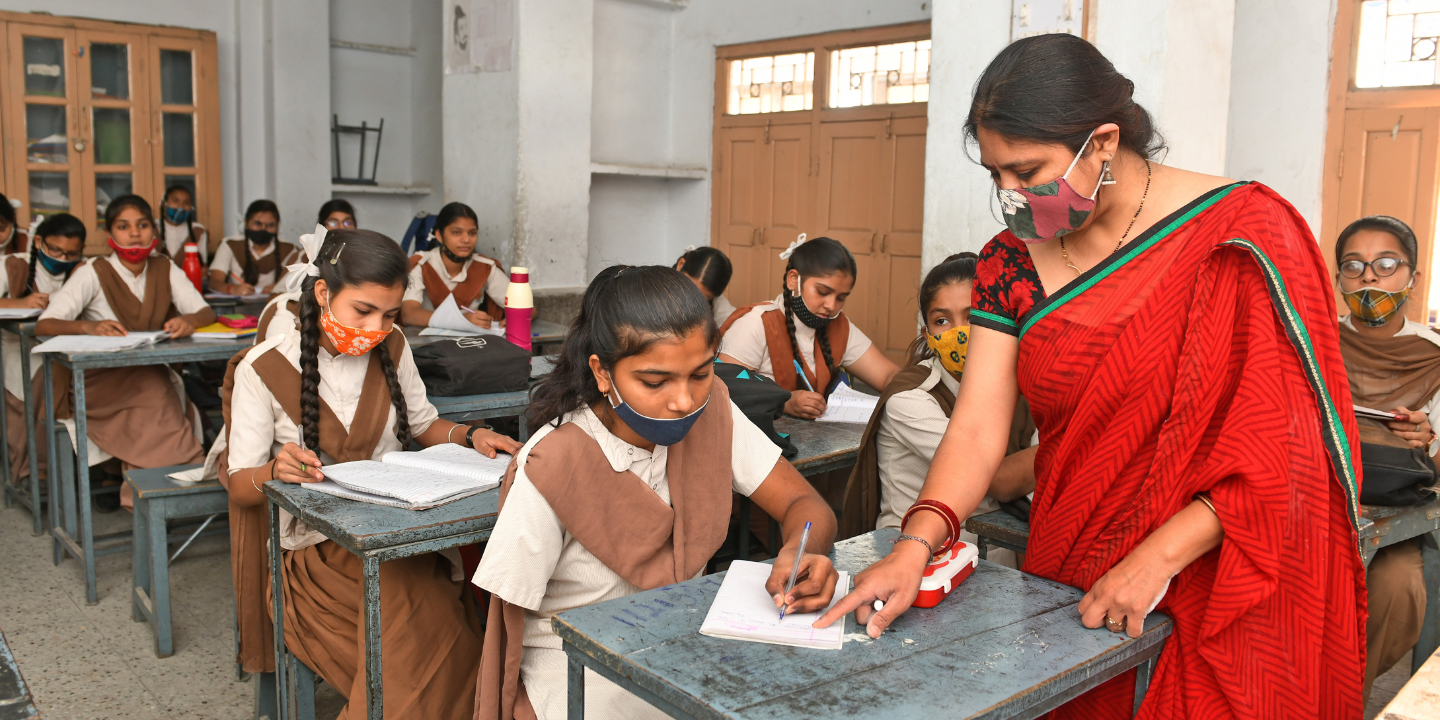
Enabling teachers to support students with disability
Research 1 Dec 2022 6 minute readNew research identifies evidence gaps in teacher professional development interventions for students with disability in the Asia-Pacific region.
Teacher readiness and capability are critical to disability-inclusive education. So it is essential that pre-service teacher training equips teachers to teach students with disability in inclusive settings. That is why the Global Education Monitoring (GEM) Centre reviewed in-service professional development programs on disability-inclusive education in the Asia-Pacific region.
Published in the Campbell Systematic Reviews Journal ahead of the International Day of Persons with Disabilities, the Evidence and Gap Map (EGM) aims to identify evidence on interventions focused on students with disability. The interventions support education from the early years to year 12 in low- and middle-income countries (LMICs) in the Asia-Pacific region. Studies were included in the EGM if they had sufficient information on disability inclusion and showed teacher or student outcomes.
The EGM will help education policymakers understand where evidence on disability-inclusive teacher professional development is strong and where more is needed. It can support efforts to meet United Nations Sustainable Development Goal (SDG) 4.5, which focuses on access to all levels of education for children with disability.
In the long-term, the EGM will help policymakers and development partners:
- allocate additional resources to interventions with sufficient evidence
- promote research in areas where evidence is scarce
- reassess ongoing areas of support
- focus on countries of interest for disability inclusion.
The EGM identified 50 relevant studies in LMICs in the Asia-Pacific region. These studies were found in only 16 of the 41 LMICs in the region, with 7 recorded in Thailand, the largest number in one country. China, India and Vietnam each had 5 studies.
The review found that almost half of the studies were in mainstream schools. Most interventions focused on changing teacher attitudes towards students with disability and understanding different forms of disability.
Only 3 studies included interventions for supporting mental health among students with disability. Similarly, only one study identified a teacher professional development intervention to support students with physical disabilities as part of a larger teacher development program.
None of the interventions identified support for students with disability during emergencies or crises. This is notable given the devastating impacts to education caused by the COVID-19 pandemic and natural disasters in recent years.
The findings suggest the need to undertake evaluations of disability-inclusive teacher professional development interventions, either as part of large programs or as standalone initiatives. The evidence should also be published for the benefit of millions of students with disability in LMICs in the Asia-Pacific region.
The review findings also highlight the need for policymakers and development organisations to prioritise investment in primary research that uses robust methods to measure the effectiveness and impact of disability-inclusive teacher professional development interventions.
Development organisations could use existing evidence hubs in the region to evaluate the effectiveness of such development programs.
The scarcity of interventions designed to support school mental health and wellbeing for students with disability indicates the need for more evidence in this area.
Further reading
Find out more about the Teacher professional development for disability inclusion in low- and middle-income Asia-Pacific countries: An evidence and gap map
View the studies in the EGM
About the GEM Centre
The GEM Centre is a long-term partnership between ACER and the Australian Government’s Department of Foreign Affairs and Trade. The GEM Centre drives improvements in learning by supporting the monitoring of education worldwide. We analyse and synthesise existing research to help education stakeholders understand and make recommendations for effective policies, practices and investments.